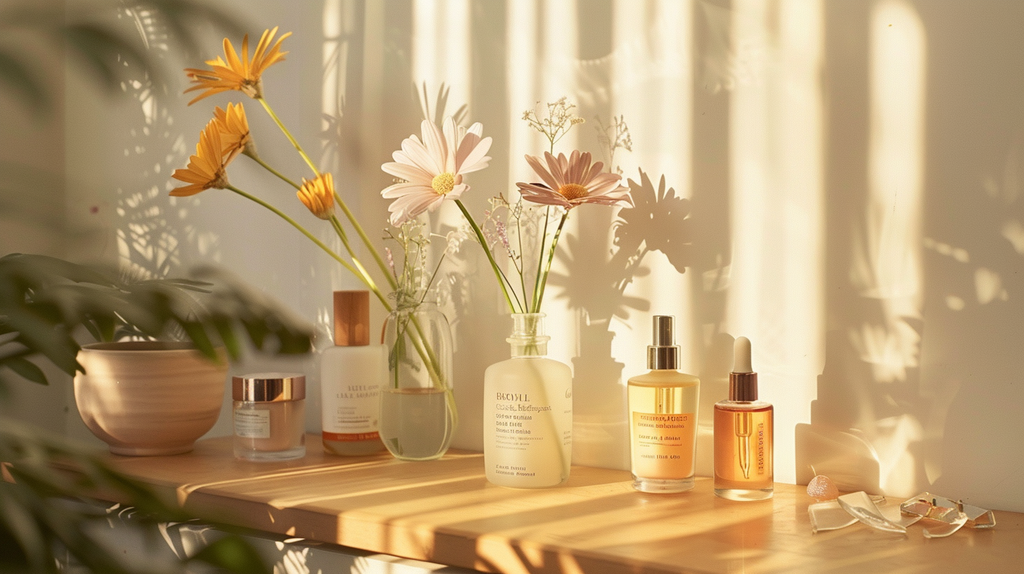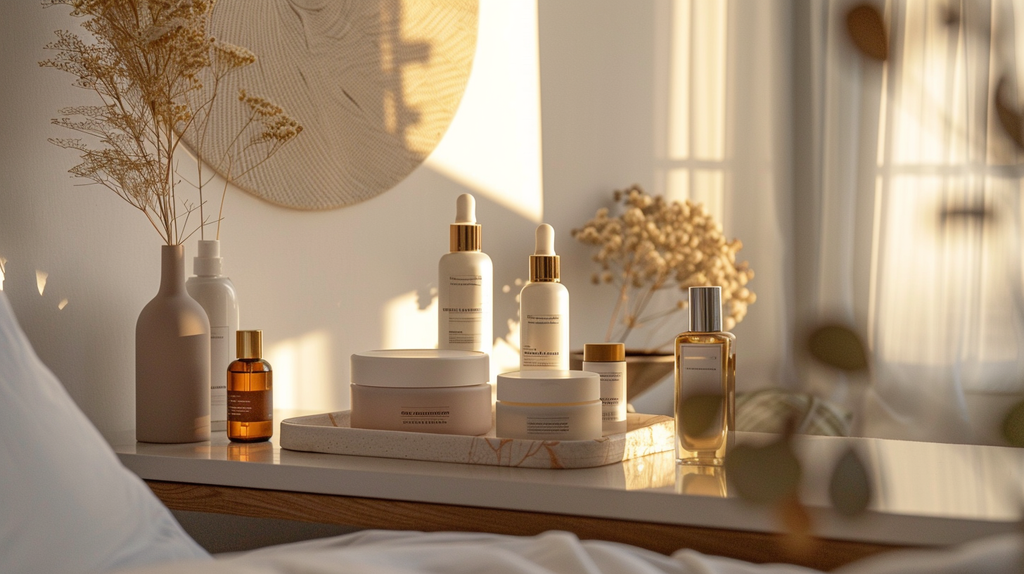Expert-Approved Secrets to Vanishing Dark Spots with Top Retinol Picks
- Uncover the science behind retinol's effectiveness in diminishing dark spots.
- Review top-rated retinol products that promise visible results.
- Implement practical tips and routines for safe retinol usage and optimal skin health.

Welcome to our in-depth guide on fading dark spots with one of skincare's most potent ingredients: retinol. Whether you're dealing with post-acne marks, sun spots, or age-related discoloration, retinol is a dermatologist-recommended powerhouse known for its effectiveness. In this blog, we'll dive into why retinol is a staple in the fight against hyperpigmentation and how you can incorporate it into your skincare regimen for the best results.
Understanding Retinol and Skin Pigmentation
The Basics of Retinol
Retinol, a derivative of Vitamin A, plays a pivotal role in skincare due to its powerful properties that promote cellular renewal and collagen production. Widely recognized in dermatology, retinol helps to smooth skin texture, reduce fine lines, and enhance skin radiance. Its transformative effects on skin make it a go-to ingredient not only for anti-aging purposes but also for treating hyperpigmentation, including dark spots. Regular use of retinol can significantly improve skin clarity and tone, making it an essential component in many skincare routines.
How Retinol Fights Dark Spots
Retinol combats dark spots primarily through its ability to accelerate the natural skin renewal process, shedding pigmented and damaged cells faster than they would naturally. This increased cell turnover is key in fading dark spots, as it removes the melanin-laden surface cells, allowing new, less pigmented skin to surface. Additionally, retinol inhibits the production of melanin by interfering with the pathway of the enzyme tyrosinase, responsible for the skin's pigment production. Over time, this not only helps to lighten existing dark spots but also prevents new ones from forming.
Scientific Insights
Numerous studies underscore the efficacy of retinol in reducing skin pigmentation. Research indicates that retinol can reduce pigmentation by up to 20% within a few months of consistent use. It is also shown to improve skin texture and reduce the severity of discolorations. Scientists attribute these benefits to retinol's profound impact on the skin's cellular functions, enhancing both the quality and appearance of the skin. This is why retinol is often a key ingredient in formulations aimed at treating hyperpigmentation and improving overall skin health.

Top Retinol Products Reviewed
Recommended Retinol Serums
When selecting a retinol serum, look for products that offer a stable formulation and an appropriate concentration for your skin type. Highly recommended serums often feature encapsulated retinol, which ensures deeper penetration and reduces irritation. These serums are typically enhanced with soothing ingredients like niacinamide or ceramides to help fortify the skin’s barrier and improve tolerance. Reviews and dermatologist endorsements are useful resources for identifying serums that provide effective results without causing undue sensitivity.
Creams and Alternatives
Retinol creams are another popular form due to their moisturizing properties, which are particularly beneficial for dry skin types. These creams may have a lower retinol concentration, making them suitable for users new to retinol or with sensitive skin. Alternatives to traditional retinol formulations include retinol esters, which are milder and release retinol gradually into the skin to minimize irritation. Each product type has its place in skincare routines, depending on personal skin needs and goals.
What to Look for in a Retinol Product
The effectiveness of a retinol product hinges on several factors: the concentration of retinol, the type of retinol used, the stability of the formulation, and the presence of complementary ingredients that support skin health and enhance retinol's efficacy. A good retinol product will also have opaque, air-tight packaging to prevent degradation of the retinol by light and air exposure. When choosing a product, consider your skin type, the specific skin issues you are targeting, and the other products in your skincare routine to ensure compatibility and maximize results.
Application Tips for Maximum Efficacy
Correct Application Techniques
To maximize the benefits of retinol while minimizing potential irritation, it's important to apply it properly. Start by cleansing your skin and applying a light moisturizer to damp skin; this can buffer the retinol and reduce irritation. Apply a pea-sized amount of retinol to your face, avoiding sensitive areas such as the eyes and mouth. It’s best to use retinol in your evening routine, as it can increase skin sensitivity to sunlight. Finally, always follow up with a broad-spectrum sunscreen in the morning to protect your skin.
Combining Retinol with Other Skincare
Integrating retinol into your skincare routine should be done thoughtfully. Avoid using retinol with other potentially irritating ingredients like Vitamin C, benzoyl peroxide, or AHA/BHAs on the same application. Instead, use these ingredients in a separate part of your daily routine (e.g., Vitamin C in the morning, retinol at night). It’s also beneficial to include hydrating and soothing ingredients like hyaluronic acid and aloe vera to help mitigate any dryness or irritation caused by retinol.
Managing Sensitivity
If you’re new to retinol, begin by using it once or twice a week, gradually increasing the frequency as your skin adjusts. This method allows your skin to build tolerance over time, reducing the risk of irritation. If you experience significant redness, peeling, or discomfort, reduce the frequency of application and consult a dermatologist if necessary. Remember, more is not always better with retinol; consistent, moderate use is key to achieving optimal results without adverse effects.

Real User Experiences and Results
Success Stories
Numerous users have shared their transformative experiences with retinol, particularly in the realm of reducing dark spots and improving overall skin texture. Many report noticeable differences within a few weeks, citing lighter spots and a more even skin tone. Dermatologists often highlight these testimonials to underscore the potential benefits of retinol when used consistently and correctly. Such stories can serve as motivational benchmarks for new users considering retinol for their skincare routines.
Before and After
Visual evidence plays a crucial role in illustrating the effects of retinol. Before and after photos often show significant reduction in hyperpigmentation and an improved complexion. These images not only validate user testimonials but also provide a tangible representation of what potential users might expect. It's important for individuals to remember that results vary based on skin type, the severity of pigmentation, and the specific retinol product used.
Expert Opinions
Skincare experts, including dermatologists and estheticians, overwhelmingly support the use of retinol for managing dark spots. They emphasize its utility in enhancing cell turnover and reducing melanin production, which are key factors in addressing hyperpigmentation. Experts also advise on best practices for retinol use, such as incorporating it gradually into skincare routines and combining it with sun protection to achieve the best outcomes. Their insights are invaluable for both novice and experienced skincare enthusiasts looking to maximize the benefits of retinol.

Conclusion
Retinol remains a cornerstone in the skincare industry for its unparalleled ability to diminish dark spots and enhance skin renewal. Through diligent application and adherence to the guidelines discussed, users can achieve significant improvements in their skin's appearance, leading to a more even and radiant complexion. As we've explored in this blog, integrating products like the "Retinol Serum" from Nano Skinz, specifically designed as a dark spot correcting glow serum, can enhance these benefits. This product not only targets dark spots effectively but also boosts skin luminosity. Remember, the key to success with retinol is consistency and patience, coupled with a mindful approach to skincare that includes sun protection and hydration. Embrace this powerful ingredient and let the transformative journey towards clearer, more vibrant skin begin.
Sources
- Brenner, M., & Hearing, V. J. (2008). The protective role of melanin against UV damage in human skin. Photochemistry and Photobiology, 84(3), 539–549.
- Davis, E. C., & Callender, V. D. (2010). Postinflammatory hyperpigmentation: A review of the epidemiology, clinical features, and treatment options in skin of color. The Journal of Clinical and Aesthetic Dermatology, 3(7), 20–31.
- Shani Darden Skin Care. (n.d.). Retinol for dark spots: 6 things to know.
- Truly Beauty. (2023, November 27). Does retinol help with dark spots?
- Curology. (n.d.). How retinol can help with dark spots.












